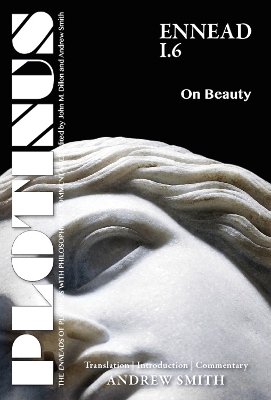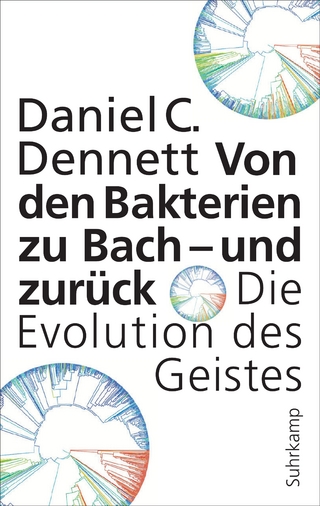
Plotinus Ennead I.6
On Beauty
Seiten
2016
Parmenides Publishing (Verlag)
978-1-930972-93-3 (ISBN)
Parmenides Publishing (Verlag)
978-1-930972-93-3 (ISBN)
This is probably the best known and most influential treatise of Plotinus, especially for Renaissance artists and thinkers. The treatise is at once a philosophical search for the nature of the divine and at the same time an encouragement to the individual to aspire to this goal by taking his start from the beauty which is experienced in this world; for it is an image of transcendent beauty.
Ennead I.6 is probably the best known and most influential treatise of Plotinus, especially for Renaissance artists and thinkers. Although the title may suggest a work on aesthetics and thus of limited focus, this is far from the case. For it quickly becomes apparent that Plotinus’ main interest is in transcendent beauty, which he identifies with the Good, the goal of all philosophical endeavor in the Platonist’s search to assimilate himself with the divine.
The treatise is at once a philosophical search for the nature of the divine and at the same time an encouragement to the individual to aspire to this goal by taking his start from the beauty which is experienced in this world; for it is an image of transcendent beauty. This upward movement of the treatise reflects throughout the speech of Socrates in Plato’s Symposium in which he recounts the exhortation of the priestess Diotima to ascend from earthly to transcendent beauty, which for Plotinus is identified with the divine.
Ennead I.6 is probably the best known and most influential treatise of Plotinus, especially for Renaissance artists and thinkers. Although the title may suggest a work on aesthetics and thus of limited focus, this is far from the case. For it quickly becomes apparent that Plotinus’ main interest is in transcendent beauty, which he identifies with the Good, the goal of all philosophical endeavor in the Platonist’s search to assimilate himself with the divine.
The treatise is at once a philosophical search for the nature of the divine and at the same time an encouragement to the individual to aspire to this goal by taking his start from the beauty which is experienced in this world; for it is an image of transcendent beauty. This upward movement of the treatise reflects throughout the speech of Socrates in Plato’s Symposium in which he recounts the exhortation of the priestess Diotima to ascend from earthly to transcendent beauty, which for Plotinus is identified with the divine.
Andrew Smith is Emeritus Professor of Classics at University College Dublin, Ireland. He is the author of Porphyry’s Place in the Neoplatonic Tradition: A Study in Post-Plotinian Neoplatonism (1974), Philosophy in Late Antiquity (2004), and Plotinus, Porphyry and Iamblichus: Philosophy and Religion in Neoplatonism (2012). He is the editor of the Teubner edition of the fragments of Porphyry (1993) and of Philosophy and Society in Late Antiquity (2005), as well as series editor, with John M. Dillon, of the Enneads of Plotinus with Philosophical Commentaries.
| Erscheinungsdatum | 29.02.2016 |
|---|---|
| Reihe/Serie | The Enneads of Plotinus |
| Verlagsort | Las Vegas |
| Sprache | englisch |
| Maße | 127 x 191 mm |
| Gewicht | 196 g |
| Themenwelt | Schulbuch / Wörterbuch ► Lexikon / Chroniken |
| Geisteswissenschaften ► Philosophie ► Erkenntnistheorie / Wissenschaftstheorie | |
| Geisteswissenschaften ► Philosophie ► Metaphysik / Ontologie | |
| Geisteswissenschaften ► Philosophie ► Philosophie Altertum / Antike | |
| ISBN-10 | 1-930972-93-8 / 1930972938 |
| ISBN-13 | 978-1-930972-93-3 / 9781930972933 |
| Zustand | Neuware |
| Informationen gemäß Produktsicherheitsverordnung (GPSR) | |
| Haben Sie eine Frage zum Produkt? |
Mehr entdecken
aus dem Bereich
aus dem Bereich
die Grundlegung der modernen Philosophie
Buch | Softcover (2023)
C.H.Beck (Verlag)
18,00 €
Buch | Softcover (2023)
Reclam, Philipp (Verlag)
7,00 €
die Evolution des Geistes
Buch | Softcover (2025)
Suhrkamp (Verlag)
30,00 €

![Was heißt Denken?. Vorlesung Wintersemester 1951/52. [Was bedeutet das alles?] - Martin Heidegger](/media/113619842)
